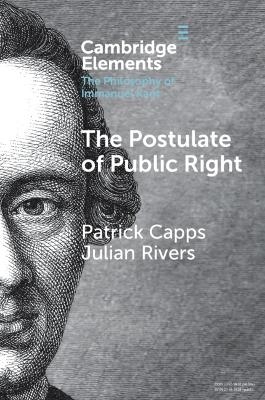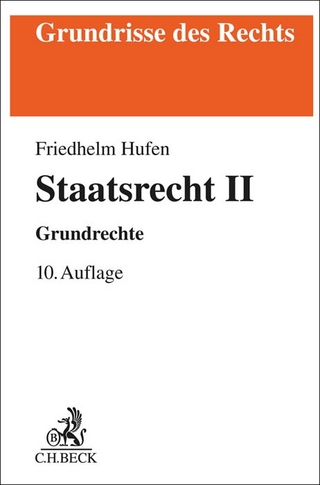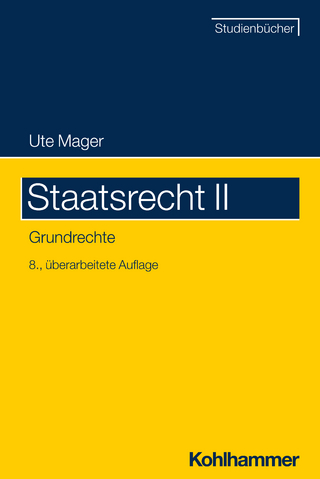
The Postulate of Public Right
Seiten
2025
Cambridge University Press (Verlag)
978-1-009-18056-6 (ISBN)
Cambridge University Press (Verlag)
978-1-009-18056-6 (ISBN)
This Element discusses Kant's Doctrine of Right and argues that Kant's claim of rightful relations between humans requires a civil legal condition. It argues two legal positivisms mislead modern readers. Instead, it shows Kant's postulate of public rights is the foundation of a non-positivist legal theory, crucial to modern legal philosophy.
Kant's main work in the philosophy of law – the Doctrine of Right (1797) – is notoriously difficult for modern readers to understand. Kant clearly argues that rightful relations between human beings can only be achieved if we enter into a civil legal condition taking a defined constitutional form. In this Element, we emphasise that Kant considers this claim to be a postulate of practical reason, thus identifying the pure idea of the state as the culmination of his entire practical philosophy. The Doctrine of Right makes sense as an attempt to clarify the content of the postulate of public right and constructively interpret existing domestic and international legal arrangements in the light of the noumenal republic it postulates. Properly understood, Kant's postulate of public right is the epistemological foundation of a non-positivist legal theory that remains of central significance to modern legal philosophy and legal doctrinal method.
Kant's main work in the philosophy of law – the Doctrine of Right (1797) – is notoriously difficult for modern readers to understand. Kant clearly argues that rightful relations between human beings can only be achieved if we enter into a civil legal condition taking a defined constitutional form. In this Element, we emphasise that Kant considers this claim to be a postulate of practical reason, thus identifying the pure idea of the state as the culmination of his entire practical philosophy. The Doctrine of Right makes sense as an attempt to clarify the content of the postulate of public right and constructively interpret existing domestic and international legal arrangements in the light of the noumenal republic it postulates. Properly understood, Kant's postulate of public right is the epistemological foundation of a non-positivist legal theory that remains of central significance to modern legal philosophy and legal doctrinal method.
Preface; Introduction; 1. From principle to postulate; 2. Law in light of the noumenal republic; Afterword; List of abbreviations; Bibliography.
| Erscheinungsdatum | 14.12.2024 |
|---|---|
| Reihe/Serie | Elements in the Philosophy of Immanuel Kant |
| Zusatzinfo | Worked examples or Exercises |
| Verlagsort | Cambridge |
| Sprache | englisch |
| Themenwelt | Recht / Steuern ► Allgemeines / Lexika |
| Recht / Steuern ► EU / Internationales Recht | |
| Recht / Steuern ► Öffentliches Recht ► Verfassungsrecht | |
| ISBN-10 | 1-009-18056-8 / 1009180568 |
| ISBN-13 | 978-1-009-18056-6 / 9781009180566 |
| Zustand | Neuware |
| Informationen gemäß Produktsicherheitsverordnung (GPSR) | |
| Haben Sie eine Frage zum Produkt? |
Mehr entdecken
aus dem Bereich
aus dem Bereich


